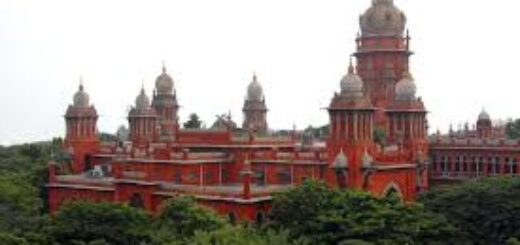Property Given Instead of Maintenance to Hindu Woman Becomes Full Ownership Under Section 14(1) of the Hindu Succession Act: Supreme Court.

The Supreme Court ruled that a property given to a Hindu woman for maintenance becomes her absolute property under Section 14(1) of the Hindu Succession Act. The Court rejected an appeal against the Andhra Pradesh High Court’s decision, which stated that if a widow receives property due to her right to maintenance, it becomes her absolute property once the Hindu Succession Act, 1956 (HSA) is in effect. Justices C.T. Ravikumar and Sanjay Karol explained that property given for maintenance transforms into her sole and unquestionable ownership. The 1933 partition deed indicated that Smt. Veerabhadramma would have a life interest in 3.55 Cents of land, which would later pass to the sons of Kallakuri Swami from both his wives.
This case involves the succession rights of stepbrothers over the property mentioned in the partition deed. After their mother’s death, the Appellants argued that her rights were expanded under Section 14(1) of the HSA, giving her full ownership of the property. The Trial Court stated that if a Hindu woman acquires property without a prior right in the partition deed, only Section 14(2) of the HSA applies. The High Court also confirmed that in a family partition involving a father and sons, if property is given to a mother, wife, daughter, or widow of a deceased son for maintenance, it should be interpreted based on the document granting that right.
The Supreme Court confirmed the findings of both the Trial Court and the High Court. It referred back to its earlier ruling in Raghubar Singh v. Gulab Singh (1998), which stated, “The right to maintenance for a Hindu widow was recognized by the two mentioned statutes, but it was not newly created by them. This right existed under Shastric Hindu law long before these laws were enacted.” The Bench noted that the right to maintenance was enough for the property given in exchange to become fully owned, as stated in Section 14(1) of the HSA. This was also emphasized in Gulwant Kaur v. Mohinder Singh (1987), which said, “The right to receive maintenance is a sufficient title to turn possession into full ownership if she possesses the property for maintenance.”
As a result, the Court concluded, “The findings of the lower Courts clearly show that absolute rights were limited to 2.09 Cents. There is no reason for this Court to disagree. The Shastric right to maintenance, recognized by two pre-constitutional laws, as mentioned in V. Tulsamma (supra) and Raghubar Singh (supra), is thus fulfilled.” Therefore, the Supreme Court dismissed the Appeal.
Cause Title: Kallakuri Pattabhiramaswamy (Dead) Through Lrs. v. Kallakuri Kamaraju & Ors. (Neutral Citation: 2024 INSC 883)









